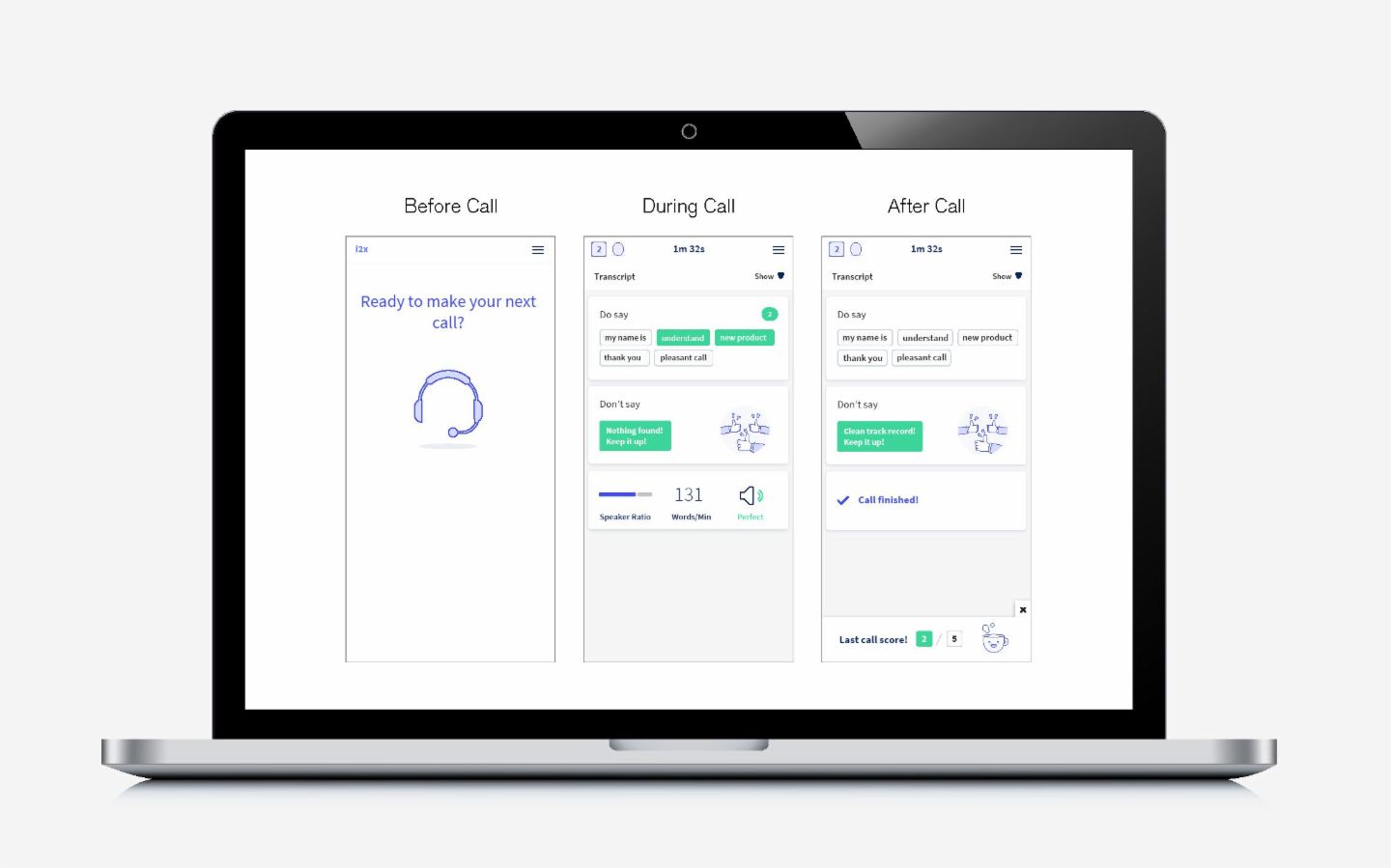How artificial intelligence helps call center staff
AI systems can provide a digital coach that supports every phone call in the call center and analyzes conversations. But are both parties more satisfied at the end of the call?
- AI-supported software offers call center staff dialogue analysis and coaching in real time.
- Call center agents are supposed to see the technology as useful, not as a threat or surveillance tool.
- Artificial intelligence helps improve customer service while serving as a human-machine interface.
For a long time now we have been used to friendly synthetic voices taking us through the menu when we make a customer service call. And to be honest, it is actually nicer to hear someone who is consistently cheerful than to speak with a stressed member of staff who is in a bad mood. Voice bots, which handle communication with the caller using AI-based language functions, have been making great pogress in communication for years now thanks to new technologies like Natural Language Processing (NLP) and ASR (Automatic Speech Recognition). Meanwhile, for example, there are also emotional analysis tools available that help stressed call center agents to find a balance between calmer and more strenuous periods. It’s designed to evenly distribute stressful conversations among the call center workers. This is certainly a sensible option for both customers and staff. So far so good.
But what happens when a “coach” is constantly telling agents that they are using certain terms too much or too little, analyzing conversations and giving hotline staff suggestions for improvement?

Artificial intelligence in customer service: Big Brother or genuine help?
Michael Brehm, the former CEO of the German social network StudiVZ, has developed just such a model with his company i2x. “Software that empowers you to do your job better while helping you learn,” is his promise. As it is almost impossible to train call center agents during operating hours, and staff motivation declines in the face of constant criticism, Brehm’s special software is meeting this gap. During the phone call, certain key words are suggested to the agent on the monitor and ticked off if they are used during the conversation. The system also recognizes filler words or phrases and alerts the agent to their use. In addition, i2x automatically converts the call center agent’s part of the conversation into a log so that team managers can see in black and white how their agents are performing. For many people this all sounds a bit like George Orwell’s vision of Big Brother, with the human being as the plaything of technology. But it is important to consider the issue rather more differentiated.
Thanks to the ubiquitous nature of smartphones, following the instructions of a navigation device or asking Siri to compile a paylist is simply part of our daily routine. Over time, this has created a relationship of trust. Most people don’t even object to aircraft being landed by autopilot. If AI is useful and explicable then people will build up trust over a longer period. But in case of doubt the decision is still ours. Trust brings about improvements – this is Michael Brehm’s response when asked about total control. “After all, we want to help call center agents to do their job better.”

- Before Call: The AI is running via the cloud and is connected to the VoIP systems.
- During Call: Analysis and live feedback: How fast am I speaking, is my counterpart getting to say anything, how often am I using clichés? In addition, the conversation is being transcribed in real time.
- After Call: The conversation is then available for analysis.

See AI as helpful, not a threat.
At any rate, his customers are satisfied with the system. Moreover, the software can help to immediately inform all call center staff about new products or new features of existing products.
Like many companies, Deutsche Telekom is also using AI in the customer service environment. “Fundamentally, a customer service department can only afford to use AI if the people working there see it as helpful to their day-to-day work and not as a threat to their existence,” explains Oliver Nissen, VP Social Media and Services, in an interview. At Telekom, the aim is for a bot to be used only if it can perform at least as well as the human beings employed. And there’s the rub. What AI is currently not yet fully capable of is having a genuinely deep understanding of verbal utterances that it has not been trained or programmed to interpret.
With i2x, Michael Brehm aims to help call center agents to always find the right tone. Time will tell whether this will succeed in practice. The benefits are obvious. Ideally, customers will receive a more personal and consistent level of service, while companies in turn will have more influence on the outcome of the interaction. And at best, call center staff will be more relaxed.
AI as human-machine interface.
But there are limits to what AI can do. Such systems are no substitute for a conversation between customer and call center agent. There will always be a need for common sense, emotional intelligence and empathy. The greatest benefit of AI is as a human-machine interface – when it complements the work done by staff. The better support provided by AI, the better people will feel they are being looked after by customer service in the future as well.
Photo credits: Westend 61 / Getty Images, Luis Alvarez / Getty Images, i2x / GmbH
